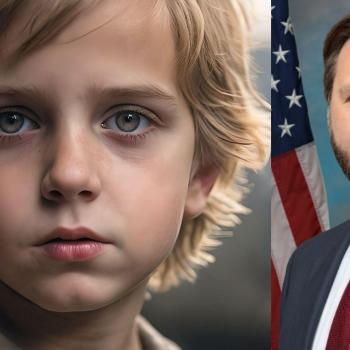That the two lovers become one flesh is the fulfillment of church teachings on consent. It is, for us, a good and holy thing. Do I still think that after thirty years? Did you read the paragraphs about grace and how attractive love is? Let me indulge you a little bit more.
Recently I was chatting with some young single people about chastity, and the grace-fueled integrity it takes to refrain from sexual intercourse, and all its intimate foreplays, before marriage.
If you want the real deal—a faith-filled, committed marriage for life—you're going to need the trust that comes from sexual integrity that is borne of prayer and graces from the sacraments. It also comes from a spirit of self-sacrifice and self-denial on behalf of the future beloved, cultivating an attitude that another's good is more precious than your own. Developing that side of your relationship before your marriage will pay dividends after your wedding day. (Let it also be said that even couples that have erred in this area, can renew their sexual integrity through the graces of confession and the Eucharist, and grow in sacrificial love for one another as they prepare for marriage. We all need graces to strengthen our love!)
Chastity is not about being against sexual love, it's about being for sexual love, but more concretely, it is being for the dignity of the other person. Chastity means one thing before marriage, and another thing after marriage.
Chastity, practiced as a virtue before marriage, honors you as it honors someone's future wife or husband, who eventually may be your future mate. Chastity, or refraining from sexual encounters, protects the another person from feeling bonded to you, especially when you might not be ready to be bound by the responsibilities and the high costs that true love almost always demands.
The dignity of the human person means recognizing, in your beloved, that everything about them is sacred, most especially their immortal soul—their destiny before God. It also includes their fertility that God may use to bring future souls into this world. That means, before even entering into the covenant of marriage, you honor the other's body as "a temple of the Holy Spirit." (See 1 Cor. 3:16-17, 6:19; 2 Cor. 6:16.) This is learning to love another through physical restraint and self-mastery.
Chastity is for married couples too. For my husband and myself, that translates into marital fidelity. We choose to be together first, always. But when circumstances separate us, and they will separate every couple periodically, both sexually and geographically, we stay faithfully attentive to one another. We talk every day and night even when we are apart. We stay away from the temptations to use porn, or flirt with other people, or drink alone.
There is no replacement or temporary fix for the occasional aches in the heart and body that we suffer when we cannot be together. Yet, here is where self-mastery again enters in. We offer it up as a sacrifice made on behalf of the other—as we keep each other's love in full view despite the distance or temporary separation—and it has served us well. This, too, is proof of the elastic grace of the Sacrament of Matrimony. Before marriage, the grace of the Eucharist sustained us—thank God there is such a remedy for our humble, fleeting, and fickle human strength. Now we have the holy bonds of Matrimony too.
Love is a great multiplier and so love begets more love. Sexual love finds its height in its fruitfulness, in the gift of a child.
The beauty of children in a marriage is a cure for any remaining selfishness I may have brought into marriage. The presence of children pulled my love for Bob out of shape, and that's a good thing. Children grew my love. If our marriage started out with our just wanting to lay our lives down for our spouse, such that we thought we could never be happier, well, children made us think again.
Becoming someone's mother or father is one of the greatest gifts of love. With children, we learned the "more" of marital love . . . what that great love we had for our spouse was really for. Having a family raised our couple-love to an order of magnitude beyond what we could dare or imagine. And we fell more in love with each other as we watched each other grow into fatherhood and motherhood.
Bob and I just came back last week from visiting our youngest son, the only one still in college. As we were driving together we were smiling: we still love being parents, no matter the ages of our children. Sure it is quite changed from the years of raising little ones. But to have come through years of the happy and sad occasions associated with each child, and to see them now launching out as adults capable of starting families of their own—well, that's a bitter sweetness we'd drink in any day of the week.





